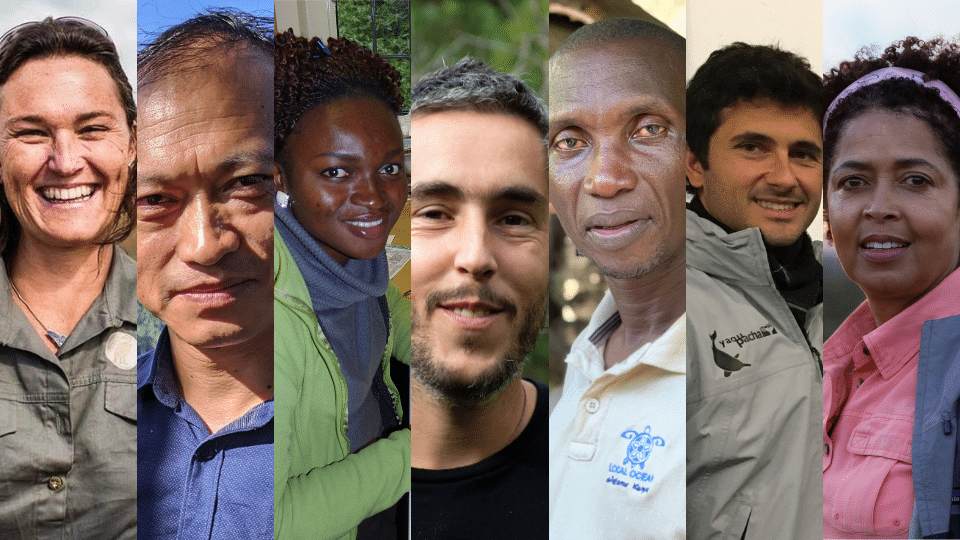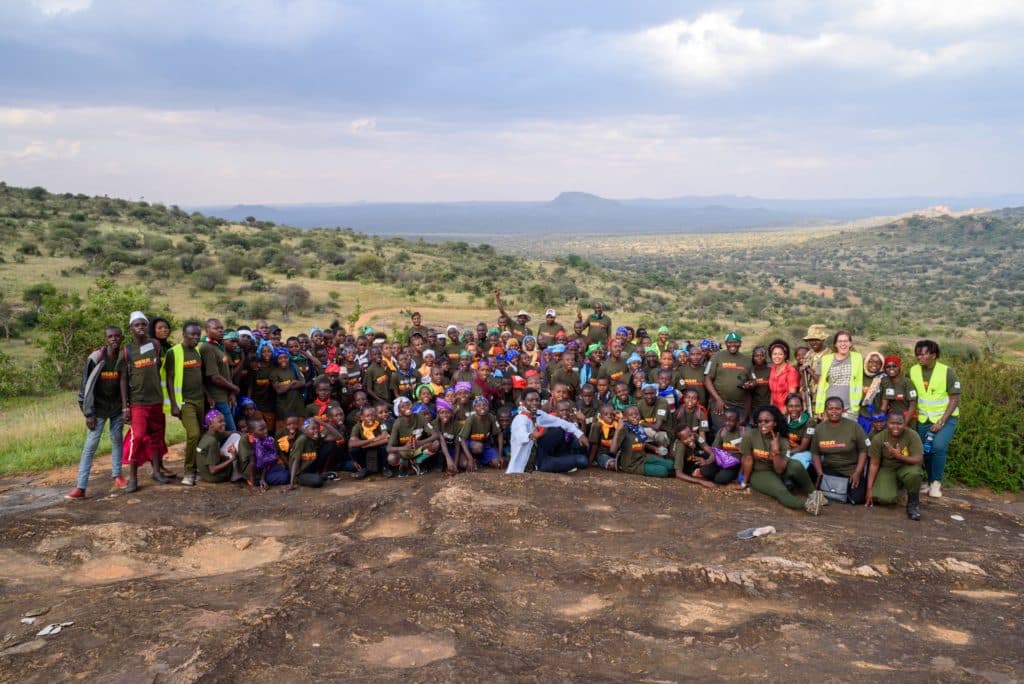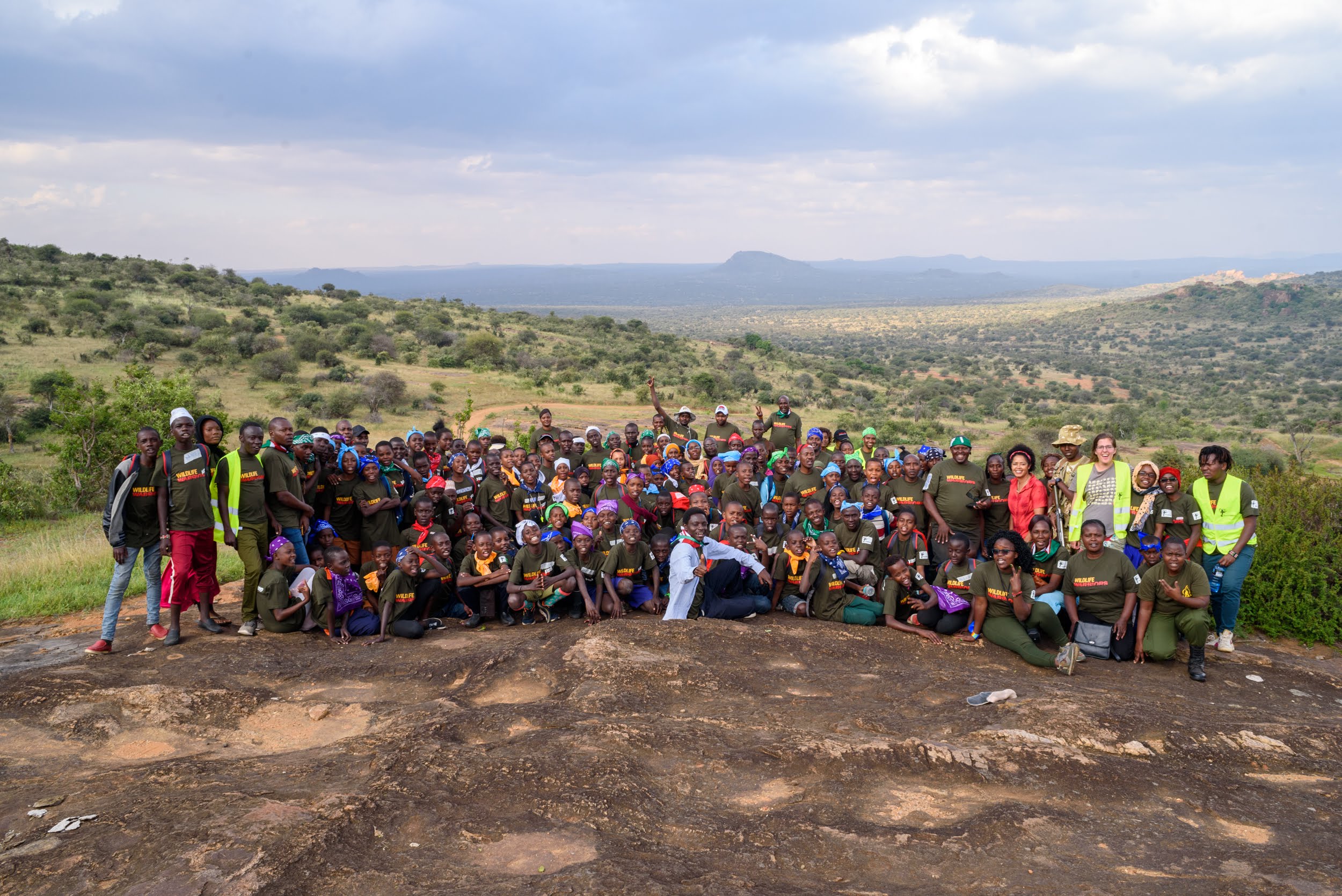After an international search, the UK charity Whitley Fund for Nature (WFN) has recognized seven conservation heroes for safeguarding species and helping communities “build back better” across the globe.
The prestigious Whitley Awards support grassroots conservationists from the Global South that lead impactful projects in their home countries. Since 1993, WFN has given £18 million to over 200 conservationists working to support wildlife, habitats, and communities in over 80 countries.
All Whitley Award winners exhibit a genuine understanding of local context, the scientific knowledge to put solutions into practice, and the leadership skills to affect change. Each of the winning projects are rooted in community participation – from environmental education to advocacy and policy work to sustainable livelihood development.
“The Whitley Fund for Nature chooses leaders who have a real understanding of the challenges facing local people, which is especially important in these very worrying economic times,” said WFN Charity Patron HRH The Princess Royal. “Their goal is to enable people to understand why conservation is so important and to empower them to support global efforts to protect the environment.”

The 2021 Whitley winners, listed from left to right: Lucy Kemp, Nuklu Phom, Irono Tanshi, Kini Roesler, Sammy Safari, Pedro Fruet, and Paula Kahumbu.
During a virtual awards ceremony on May 12th, the 2021 winners were each awarded £40,000 in project funding, as well as training and PR support to help them continue building upon their successes.
“The 2021 Whitley Award winners have highlighted some of the finest examples of grassroots conservation through programmes that protect threatened wildlife, restore ecosystems, and benefit indigenous people,” said Edward Whitley, Founder of WFN. “We are honoured to welcome this year’s winners into our Whitley Awards family and are proud to acknowledge and support the expansion of their remarkable projects.”
Specifically, these new additions to the family are:
- Lucy Kemp is taking a community-based approach – integrating South African traditional knowledge with conservation action – to protect the endangered Southern Ground-hornbill.
- Nuklu Phom is establishing a Biodiversity Peace Corridor in Nagaland, India – a network of community-owned and sustainably-managed forests that can support both biodiversity and livelihoods.
- Irono Tanshi is bringing Nigeria’s only population of short-tailed roundleaf bats back from the brink through participatory action – addressing drivers of decline in ways that benefits communities too.
- Kini Roesler is working to protect the critically endangered Hooded Grebe – the guardian of Argentina’s Patagonian steppe – by building local capacity for research, conservation, and outreach.
- Sammy Safari is transforming the future of sea turtles and key ecosystems along Kenya’s coast by working with communities to promote strong governance, habitat stewardship, and sustainable livelihoods.
- Pedro Fruet is building bridges between fishing communities and conservationists in Brazil to encourage coexistence and connectivity with the Lahille’s bottlenose dolphin.

Some of the stunning flagship species that the Whitley winners are focusing on: Hooded Grebe (1), Lahille’s Bottlenose Dolphin (2), Short-tailed Roundleaf Bat (3), Amur Falcon (4), Sea Turtles (5), Southern Ground-Hornbill (6), and African Elephant (7).
This year’s top prize, the Whitley Gold Award, honoured Kenyan conservationist Paula Kahumbu with £100,000 to promote justice for people and wildlife by continuing the fight against ivory trafficking and habitat destruction.
Paula previously won a Whitley Award in 2014, as well as WFN Continuation Funding in 2016, which she used to launch multiple successful campaigns against wildlife crime. She also produces and presents the ground-breaking “Wildlife Warriors” TV series – the first made by Africans for an African audience. With her Gold Award, Paula aims to expand her efforts as CEO of WildlifeDirect to create a culture of public participation in environmental decisions.
“I want to see a global shift in the narrative,” Paula said, “where Africans are the storytellers about African wildlife and assume the lead in efforts to protect it.”

Students participating in WildlifeDirect’s signature Education and Outreach program – Wildlife Warriors Kids – pose during a field trip to the Mpala Research Centre in Laikipia, Kenya.
This year is critical for changing the course of our biodiversity and climate crises, especially for those on the frontline of the environmental emergency in the Global South. The positive results from the Whitley winners’ efforts so far, along with the promise of what they will achieve in the future, provides incredible inspiration for tackling these challenges.
“Whitley Award winners are local environmental heroes, harnessing the best available science and leading projects with passion,” WFN Trustee Sir David Attenborough said. “I admire their courage, their commitment, and their ability to affect change. There are few jobs more important.”


